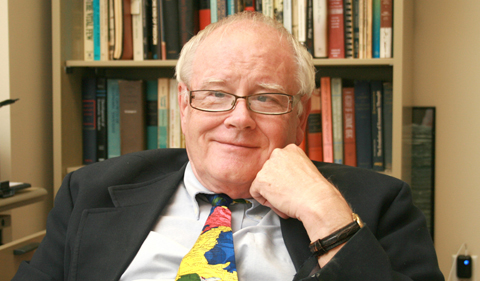Dr. Richard Vedder, Distinguished Professor Emeritus of Economics at Ohio University, was a guest March 6 on “Air Talk” on 89.3KPCC radio on the topic “Should it be easier to wipe out student debt in bankruptcy?”
“Last Thursday, the new chairman of the Federal Reserve questioned why struggling borrowers can’t discharge their student loans in bankruptcy,” noted host Larry Mantle. “In a response to a question about whether high levels of student debt create a drag on the economy, Jerome Powell told members of the Senate Banking Committee that policymakers should foster the idea that Americans can borrow to invest in themselves and expressed concern about the treatment of student loans in bankruptcy.”
“Would making student loans easier to forgive via bankruptcy help or weaken the economy?” Mantle asked Vedder.
“At the time when federal student loan debt was beginning (in the 1970s) to grow from a very small amount to a much larger amount, at that time we extended student loans from a very modest proportion of the population, very low-income people, to a much broader segment of the population,” Vedder said. “And at the time there was concern about whether these debts should be allowed to be dischargable. The argument that I’m sure was used at the time and is still used today by those who like the status quo and who do not want to change things is that student load debt is quite different from almost any other kind of debt there is.
“It is the only kind of debt … where there are absolutely on underwriting standards…. It is sort of an entitlement that people have that has very little to do with their ability to repay. … So there is a feeling that if we allowed these debts to be discharged in bankruptcy a lot of people would. We would have a tremendous rise in defaults. This would ultimately be costly to the government, which is now losing money on these programs…” Vedder said.

















Comments